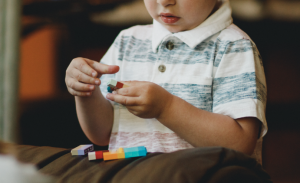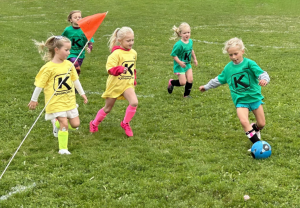
Obsessive Compulsive Disorder (OCD) is a disorder where one experiences reoccurring thoughts and/or repetitive compulsions. Compared to the quality of life in adults with OCD, the quality of life in children with OCD has not been researched as much. The prevalence of OCD in children is 0.5-3%, and they can experience other psychological disorders like depression, anxiety, etc.
In this study, they measured the quality of life in children/adolescents after cognitive behavioral therapy (CBT) in comparison to those without OCD. The results yielded that the quality of life was worse before CBT treatment and improved after the CBT treatment as self-reported by the children and their parents.
Quality of life is not used as a measure of treatment in aiding children and adolescents with OCD, but this study provides implications for incorporating quality of life as a measure!
To read more, click here!
Ashley Bejar, UConn KIDS Research Assistant













